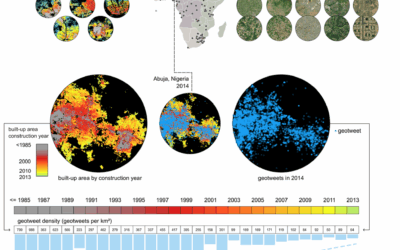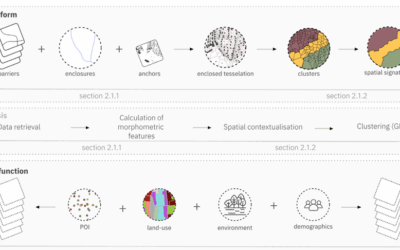New publication on “A road map for future data-driven urban planning and environmental health research”
On 24 and 25 October, 2023 the Urban Burden of Disease Policy workshop on Cities, form, environmental exposures and health impacts took place in Sitges, Spain. Our professor Hannes Taubenböck gave a keynote presentation on “Urban form – Analysis from space”. We had reported on this. https://remote-sensing.org/invited-keynote-at-ubdpolicy-workshop/ .
A commentary in the journal Cities has now emerged from the discussions of the participants from a wide range of disciplines and research fields. The paper titled “Commentary: A road map for future data-driven urban planning and environmental health research” was just published by Georgia M.C. Dyer, Sasha Khomenko, Deepti Adlakha, Susan Anenberg, Julianna Angelova, Martin Behnisch, Geoff Boein, Xuan Chen, Marta Cirach, Kees de Hoogh, Ana V. Diez Roux, Manuel Esperon-Rodriguez, Benjamin Flueckiger, Antonio Gasparrini, Tamara Iungman, Haneen Khreis, Michelle C. Kondo, Pierre Masselot, Robert I. McDonald, Federica Montana, Rich Mitchell, Natalie Mueller, M. Omar Nawaz, Evelise Pereira, Enrico Pisoni, Rafael Prieto-Curiel, Nazanin Rezaei, Diego Rybski, Jose J. Ramasco, Rossano Schifanella, Saif Shabou, Lambed Tatah, Hannes Taubenböck, Cathryn Tonne, Daniel Velazquez-Cortes, James Woodcock, Qin Zhang and Mark Nieuwenhuijsen.
Here is the link to the full article: https://www.sciencedirect.com/science/article/pii/S0264275124005547?via%3Dihub
Here is the abstract of the paper: Recent advances in data science and urban environmental health research utilise large-scale databases (100s–1000s of cities) to explore the complex interplay of urban characteristics such as city form and size, climate, mobility, exposure, and environmental health impacts. Cities are still hotspots of air pollution and noise, suffer urban heat island effects and lack of green space, which leads to disease and mortality burdens preventable with better knowledge. Better understanding through harmonising and analysing data in large numbers of cities is essential to identifying the most effective means of disease prevention and understanding context dependencies important for policy.








